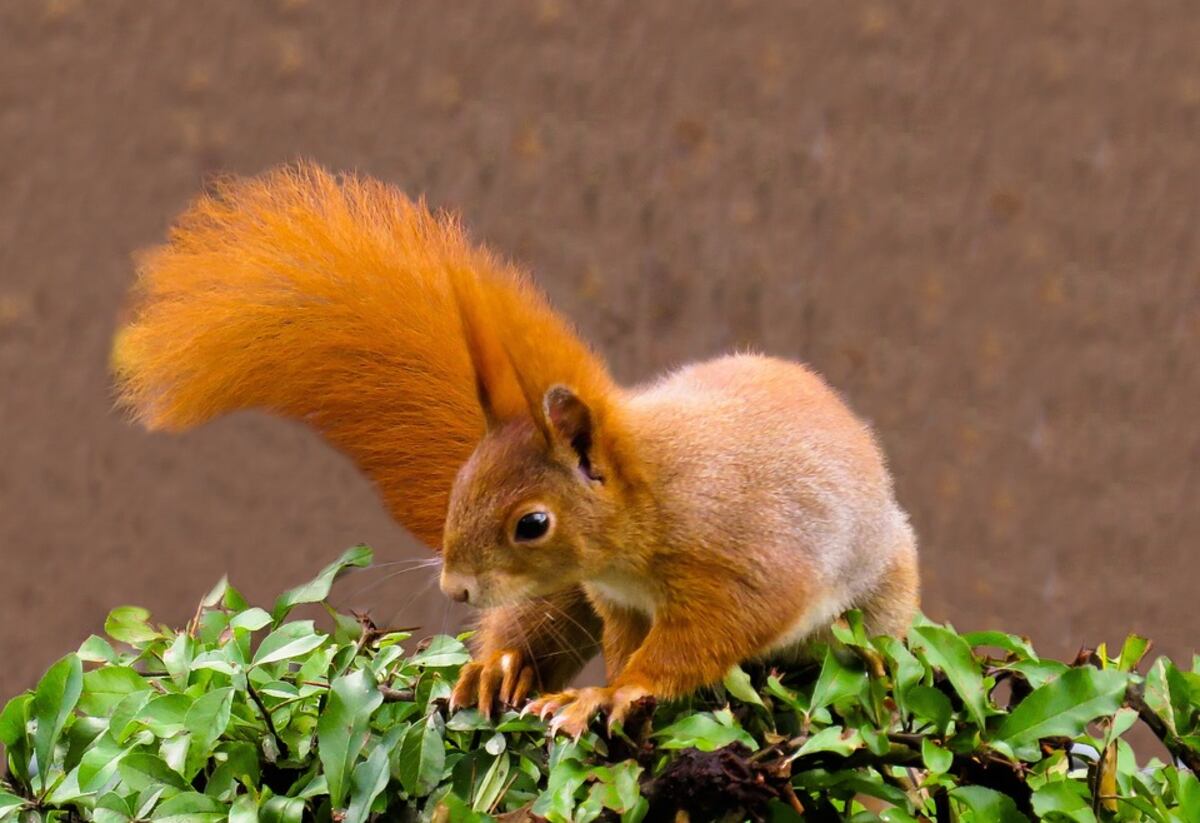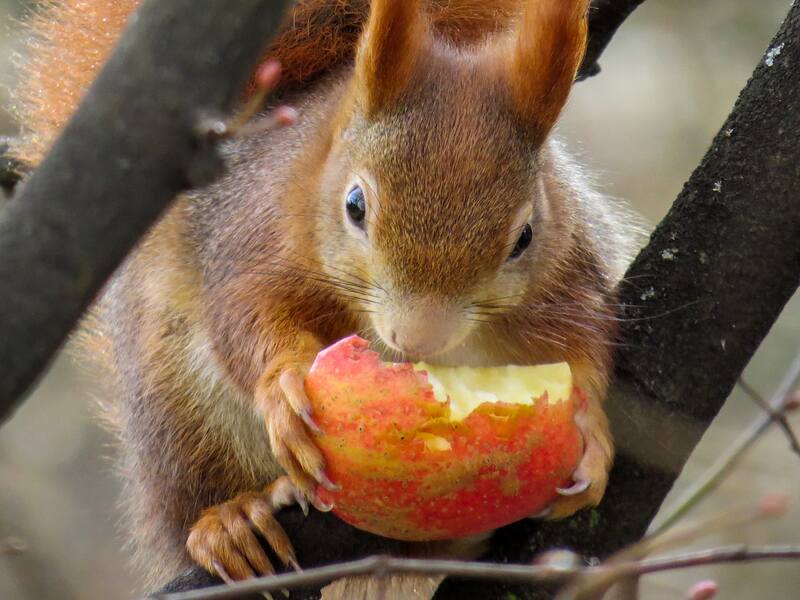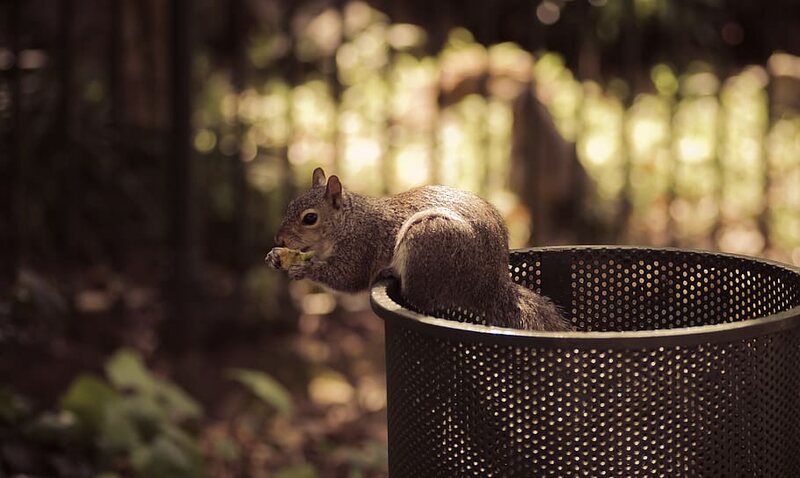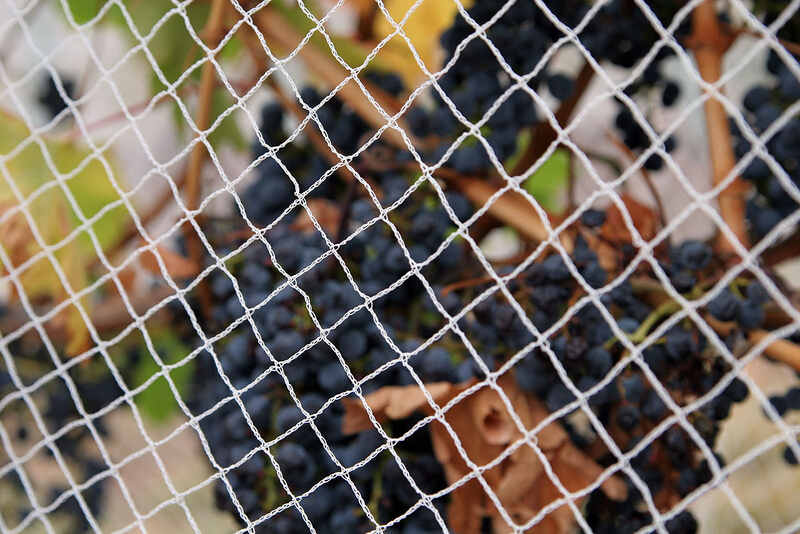
If you like gardening, you’re likely familiar with the struggle of how to keep squirrels out of your garden in Lancaster, PA. It can be incredibly frustrating to watch your carefully planted vegetables and fruits disappear overnight, all thanks to those pesky gray squirrels that seem everywhere in the area.
Don’t worry, you’re not alone in this struggle. In this article, we’ll explore practical ways to keep squirrels out of your garden, so you can enjoy the fruits of your labor and the beauty of your plants without competing with these adorable but troublesome creatures.
1. Remove or Relocate Squirrels’ Food Sources

Squirrels are notorious for raiding gardens in search of tasty treats like fruits, nuts, and berries. However, removing or relocating their food sources can discourage squirrels from hanging around your garden.
One of the best ways to deal with your squirrel problem is to start by identifying the food sources attracting them. Squirrels are omnivorous creatures and will eat just about anything, so if you have any treats lying around, this could be the reason. Follow these tips:
- Bring your pets’ food inside
- Use a nut gatherer to remove nuts and acorns from your yard
- Remove or relocate bird feeders
- Set up a feeding station with acorn, nuts, and sunflower seeds in a spot far away from your garden. (Word of caution: Once you roll out the red carpet, it may be hard to get them to leave.)
- Cover your garden
2. Remove Garden Debris

Keeping squirrels away from your yard requires effort, and it’s important to remember that removing garden debris is just as important as removing food sources. These cute furry creatures can’t resist the scent of fallen nuts and fruits, so staying on top of debris cleanup in your yard is a good idea.
If you notice any debris littering the areas under your trees, rake it away as soon as possible to remove any tempting snacks that may be drawing squirrels to your yard. Another great tip is to ensure that all your trash can lids are properly secured and, whenever possible, store the bins indoors.
3. Use Unpleasant Smells
Squirrels have a highly sensitive sense of smell and taste and don’t like strong, pungent odors. So, there are a few substances that you can try sprinkling in your Lancaster garden to keep squirrels off.
- Predator urine
- Deer repellent
- Peppermint oil
- Garlic oil
- Hot pepper (chili or cayenne pepper)
- Apple cider vinegar
It’s important to note that these methods are olfactory repellents and may only keep squirrels away for a short time, so they must be reapplied after rainfall. For long-term squirrel control, you may need to consider other strategies, like physical barriers.
Warning: Do not use mothballs to repel squirrels. The active ingredients in mothballs can harm the environment, wildlife, pets, and humans. These chemicals can contaminate water and soil, pollute the air, and cause serious health problems.
4. Get a Motion Activated Sprinkler
One of the most effective ways to keep squirrels away from your garden in Lancaster is by using motion-activated sprinklers. They work by detecting the motion of squirrels and releasing a sudden burst of water that startles them, effectively acting as a scare tactic.
Motion-activated sprinklers are effective but also humane and safe for squirrels and humans. Unlike other methods, such as poisons or traps, these sprinkler systems do not cause harm to squirrels or other wildlife that may come into contact with them.
5. Unleash Your Pet’s Power
If you’re a pet owner, you might be pleased to know that your furry friend could already be helping to get rid of squirrels. Their natural curiosity towards these little critters can act as a squirrel deterrent and make them feel less comfortable in the area. So, the more time pets spend outside, the better.
This is not to say that your pet should be trained to chase or harm squirrels — in fact, it’s essential to ensure they don’t threaten any wildlife in your area.
However, suppose you already have a pet who enjoys spending time outdoors. In that case, even if it’s just for sunbathing or lounging, they can still help get rid of squirrels.
6. Protect Your Plants

One of the best ways to ensure that squirrels won’t munch on your vegetables is by protecting them. There are several effective methods for protecting your vegetables from squirrels, including using:
- Chicken wire
- Row covers
- Hardware cloth
- Bird netting
- Old stockings
- Aluminum foil
- Greenhouses
Each method creates a physical barrier that makes it difficult for squirrels to access your vegetables. It’s also essential to place any fencing or barriers at least a foot into the ground to prevent them from accessing your vegetables from below.
Some options, such as greenhouses or chicken wire, may require an investment in materials and labor but can provide long-lasting protection for your garden. Other options, like using old stockings or aluminum foil, can be DIY with materials you may already have.
7. Use Nature’s Pest Control
If you’re looking for a natural solution to get rid of squirrels, consider attracting hawks or owls. These raptors are natural predators of squirrels, and the mere sight of them can be enough to keep squirrels at bay.
You can try placing raptor perches nearby to attract hawks or owls to your garden. These poles provide a place for the birds to perch while they hunt for food and can also serve as a visual cue that your garden is not a safe place for squirrels. In addition, they also help control rats, mice, gophers, and even snakes!
Tip: If you’re not keen on attracting live predators to your garden, you can still use decoys to keep squirrels at bay. A popular option is to use a resin owl or a rubber snake, which can be strategically placed in your garden to deter squirrels.
8. Use Plants Squirrels Hate

One way to keep squirrels out of your garden is to plant vegetation that they find unappetizing. There are many plants squirrels dislike, typically due to strong odors or flavors that they find unpalatable.
You can incorporate these plants into your garden by either surrounding your garden with them or interplanting them with the plants you want to protect:
- Alliums (onion and garlic)
- Goldenrod
- Daffodils
- Galanthus
- Hyacinth
- Lily-of-the-valley
- Geraniums
- Mint
Tip: Mint can be invasive and take over your garden like a weed. If you’re planning on using mint to deter squirrels, it’s a good idea to keep it in a separate pot or container to prevent it from spreading uncontrollably.
9. Cover the Soil
Another way to deter squirrels from your garden is to cover the soil with mulch. Squirrels do not like to step on mulch, so adding it to your garden beds can make them less attractive to these critters.
Mulch also serves the purpose of disguising the scent of fresh fall bulbs, which can be a significant draw for squirrels. By masking the smell of bulbs, you can make it less likely that squirrels will dig up your plants and destroy your garden.
How to Identify Squirrel Damage
Before taking steps to keep squirrels away from your garden, it’s important to make sure that squirrels are actually the cause of your troubles. Many types of pests can cause damage to gardens, and misidentifying the culprit can lead to wasted time and effort.
Here are a few signs that may indicate squirrel damage in your home or yard:
- Nests in the attic
- Uprooting of plants and flowers
- Split shells or husks of nuts
- Bitten fruits
- Chewed bark
- Chew marks in your home or outdoor furniture
- Ravaged bird feeders
- Ripped open garbage bags
- Footprints
FAQ
Having squirrels eat the seeds you put out to attract birds can be a frustrating and persistent problem for many bird lovers since they cause damage to the bird feeders. Here’s how you can avoid that:
● Use PVC or copper poles
● Attach baffles to the pole
● Use a spinning hook to hang the feeder
● Place seeds squirrels don’t like (safflower, thistle, and nyjer)
● Add chili peppers to the seeds (don’t worry, it won’t affect the birds)
● Place the feeder at least 10 feet away from trees
● Invest in squirrel-proof bird feeders
Squirrels are a vital part of the ecosystem. However, they can be a major nuisance in gardens for several reasons. Firstly, they can eat various plants, fruits, and flowers, which can significantly damage your garden.
Additionally, squirrels are notorious for digging in container gardens and flower beds to eat bulbs and corms, which can be frustrating for gardeners who have worked hard to cultivate their plants. Beyond the damage to plants, squirrels can also destroy garden furniture, decking, and even plastic containers.
No, ultrasonic repellents do not work. In theory, these devices work by emitting a high-pitched sound that is unpleasant to squirrels and drives them away. However, scientific research conducted by the University of Arizona has shown that ultrasonic squirrel repellents have little to no impact on deterring these furry creatures.
When to Bring in the Professionals
In conclusion, squirrels can cause significant annoyance for homeowners, causing damage to gardens, bird feeders, and even property structures. If you’re struggling with squirrels on your landscape and it seems too overwhelming to handle on your own, it may be time to seek out the help of a local Lancaster landscaping pro who can advise you on how to take your backyard back.
Main Image Credit: Pixabay